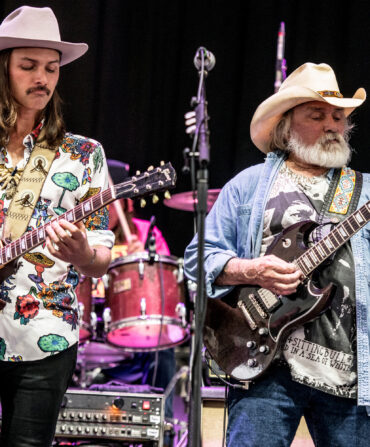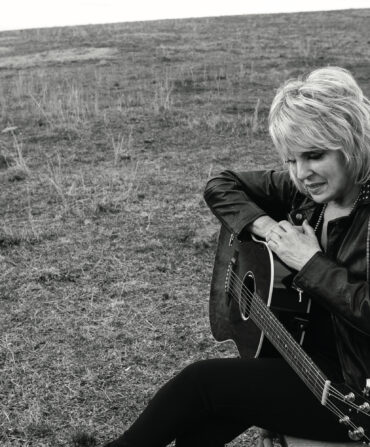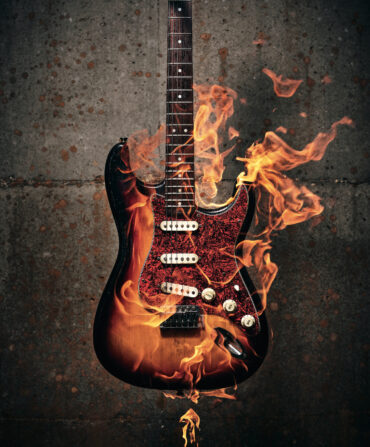Artists
Benjamin Booker: Rock Star
A Florida kid from a conservative family, twenty-five-year-old Benjamin Booker may seem an unlikely candidate to lead a new wave of blues-influenced musicians. Until he gets onstage, where it’s plain to see his talent is off the charts
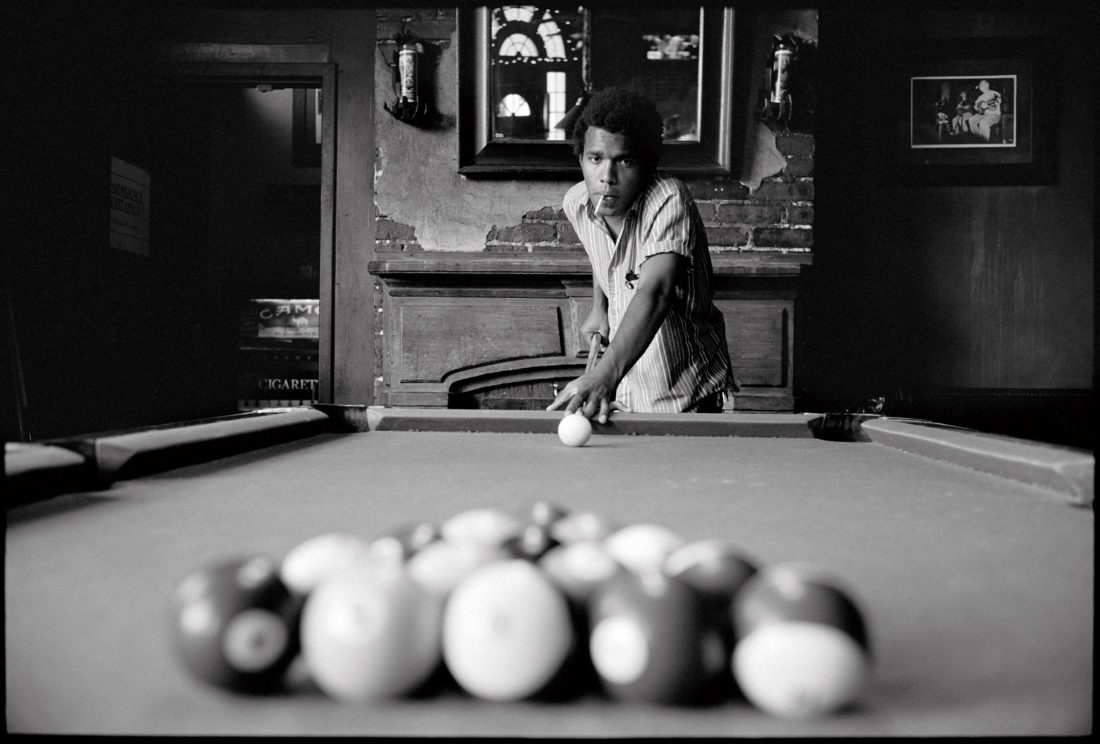
Photo: Jim Herrington
On a Friday night in early autumn, Louisville’s premier music club, Zanzabar, is absolutely crammed, with revelers spilling out onto the sidewalk in the warm Kentucky air. Located in the city’s Germantown neighborhood, Zbar—as it’s known locally—is also famous for its arcade, including more than a dozen vintage pinball machines. Bands love the joint because the club gives them free tokens. But just after 10:00 p.m., the arcade empties as the crowd pushes into the low-ceilinged stage area.
Benjamin Booker strolls out to whoops and hollers, picks up his guitar, looks back at his bandmates, drummer Max Norton and bassist Alex Spoto, and launches into the slow, sludgy blues intro of “Always Waiting,” a track off his self-titled debut album. After thirty seconds, Booker stops on a dime and the song takes off into a roar of jangly guitars, thundering rhythm, and his gnarly, scratchy vocals, which make him sound about sixty years older than his current twenty-five. Eyes widen, jaws drop, and heads start thrashing.
In a music world saturated with blogs, Tweets, and Facebook posts, it’s nearly impossible to sift through the chatter. But then, that moment. The instant when you hear something that makes the hair stand on the back of your neck. A shiver rips up and down your spine and all you can think is, Who is this?
It’s Benjamin Booker, the most exciting blues-rock artist since the Jack White–formed White Stripes roared onto the scene in the late nineties with its own brand of lo-fi blues punk. Booker’s record is easily one of the best of 2014. In fact, he’s already opened for Jack White, this past summer, and caused the usually flippant David Letterman to declare,“Oh my God!” after Booker’s performance of “Violent Shiver” on Late Show. (It’s well worth the three and a half minutes on YouTube.) Booker’s gravelly singing voice sounds like a mix of Blind Willie Johnson and even the godfather of the blues, Robert Johnson, but his musical influences range from Otis Redding to the iconic punk bands Minor Threat and the Gun Club. If the guitar virtuoso Gary Clark Jr. is the head of the new wave of blues artists, Booker is the friskier, restless kid not afraid to blaze his own trail. “I hate that jammy shit,” he says. “Kudos to him, but it’s just not my thing.”
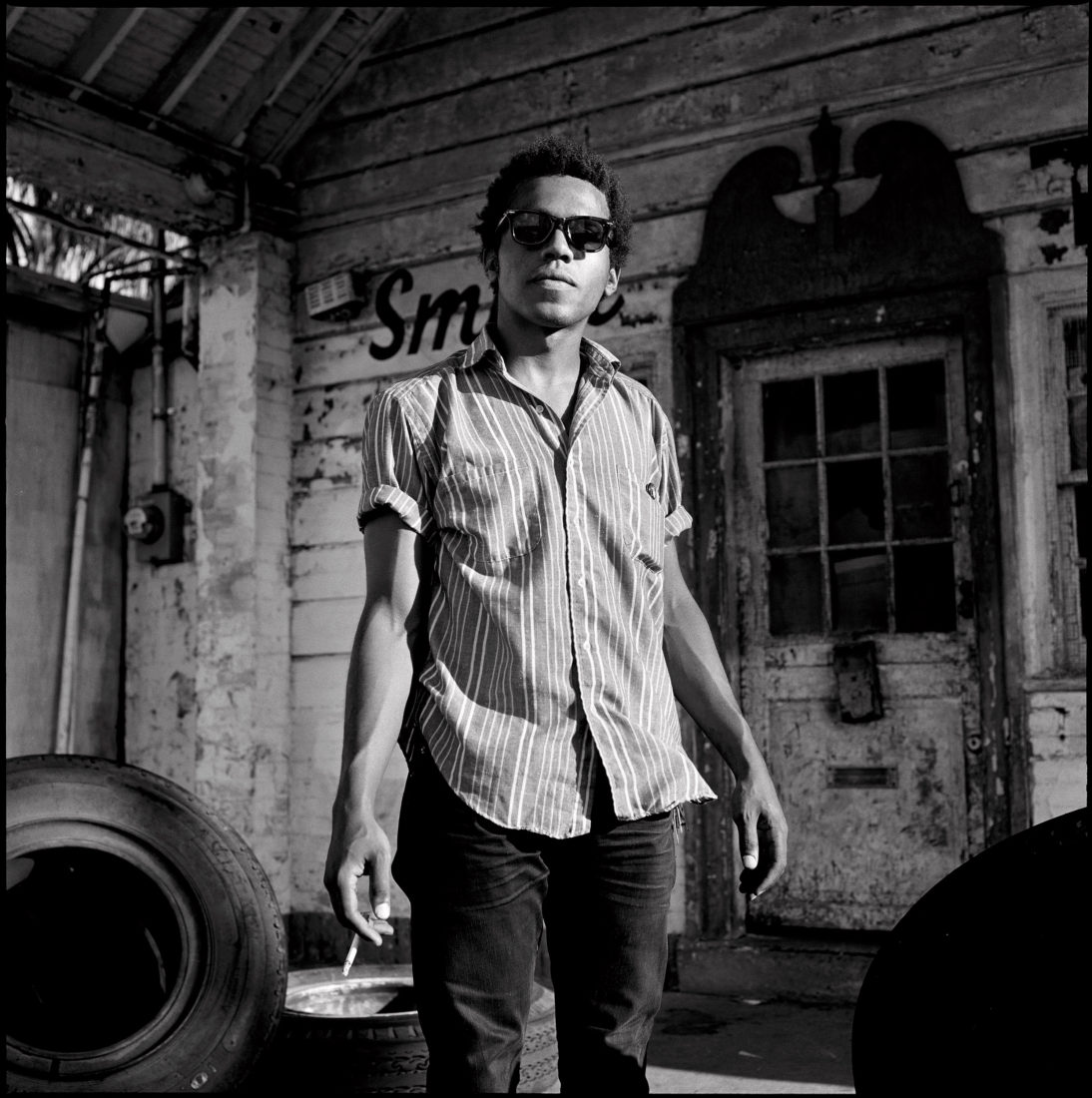
Photo: Jim Herrington
Bright Future
Booker in the Faubourg Marigny neighbohood of New Orleans.
The explosion of attention is more than a little heady for Booker, whose musical career began just in 2012 in his adopted hometown of New Orleans. “Being a rock star sounds horrible,” he says. “I already think it’s gone too far.” It’s a week before the Louisville show, and Booker is home for just a couple of days, sitting on a bench overlooking the Mississippi, drinking an iced coffee, and smoking Marlboro Reds. He’s about to head out on a two-month tour that will take him around the United States and then to Europe. It’s a beautiful day in the Big Easy, absent the choking humidity the city suffers through six months of the year.
In person, Booker’s voice is soft and quiet, a far cry from the onstage rasp. “I probably should take better care of myself,” he says, lighting up another smoke. He likes the contradictory, and making grand pronouncements: “Honestly, at this point, I think it would be nice to settle down with a wife and a couple of kids.” But then a Cheshire-cat grin makes it clear he’s mostly joking.
Born in Virginia Beach, Virginia, Booker grew up mainly in Tampa, the youngest of three children—he has two sisters—in a conservative household. His mother had worked as a volunteer for the Christian Broadcasting Network, his father as a military cop. At thirteen, he went on a school field trip to Orlando and a friend had a CD player with the White Stripes’ 2003 album, Elephant, in it. He listened and was instantly smitten, and as soon as he arrived back in Tampa, he headed to the mall and bought his own copy. “I just remember going, ‘Wow,’” he says. “There wasn’t much music in my house when I was growing up, and that record changed my life.” He started frequenting local clubs that had all-ages shows and eventually picked up guitar on his own.
Despite his quixotic manner, Booker has a knack for the analytical. He attended the University of Florida, majoring in journalism because he wanted to write about bands coming through Gainesville. But he couldn’t find a job after graduation, so in 2012 he headed to New Orleans to work for AmeriCorps’s HandsOn New Orleans effort, helping to rehab school buildings and maintain city gardens.
Inspired by New Orleans music as well as such punk-folk bands as Hurray for the Riff Raff, he began writing songs, playing his first solo acoustic gig at a local club. A few friends had come with him, but then a movie let out next door and around a hundred people filed in. “It was horrifying,” he recalls. “I played like five songs, bolted off stage, and spent the rest of the night drinking.” The stage fright eventually wore off, and he began playing regularly around town. He posted a few songs on the web, garnering a glowing post on the influential music blog Aquarium Drunkard, the same site that broke the Alabama Shakes.
Then, in 2013, an iPhone video of him performing on Max Norton’s back porch made its way to Jon Salter, the general manager of New York–based ATO records. “I was so intrigued when I watched it,” Salter says. “I loved the songs, his look, and the rawness of it.” Salter flew down to Tampa, where Booker was playing a hometown gig, and after the show he offered him a handshake record deal right there in the parking lot. “You have to feel magnetic energy, the charisma, the whole thing,” Salter says. “I was moved. There was something in my bones that just knew he had it.”
Booker’s parents, though, were less than thrilled. One of the highlights of his album is a song called “Have You Seen My Son?” It’s the first song he ever wrote, and the lyrics are chilling, describing his mother wailing in prayer for him, fighting when he moved to New Orleans, and Booker searching for his own truth in the world.
I heard that you were calling on the Lord
Asking for answers, for some relief
I heard that you were calling out my name
And that you cried for a whole week
Saying have you seen my son?
He’s lost in the world somewhere
I pray for him every day
But I know he ain’t seen your ways.
Family discord came to a head during a visit to a hospital to see a twelve-year-old cousin who was faring badly. “It was one of those things where we knew we wouldn’t see him again,” Booker says quietly. “That stuff makes you look at your relationships with other people. We ended up getting into this really huge argument in the car about what I’m doing.” Booker says he thinks his parents will come to a show he’s playing in Tampa a few weeks later, but he isn’t sure. “I guess they’ll come,” he says. “It’s just going to be really weird.”
At Zanzabar, Booker closes his set with “Have You Seen My Son?” drawing out the ending with squealing guitar while he bobs and weaves around the stage, fully entranced in the moment. It’s been an hour of rapid-fire, breathless blues, including a cover of Otis Redding’s “Shout Bamalama.” “He’s a huge influence on my songwriting,” Booker says of Redding, “but I sure can’t sing like him.”
When he’s finished, the crowd clearly doesn’t want it to end. Chants of “Book-er, Book-er” fill the bar. After a few minutes, he comes back onstage but only to unplug his guitar. Sweating profusely, a guy up front corrals Booker as he steps off. “Man, that was amazing,” he says, putting his arm around him. “I’ve never seen anything like that.”
Booker says a quick thanks, shakes a few more hands, and heads to the back of the club, to the relative sanctuary of the merchandise table next to the arcade. He declines offers of a drink from fans. “You know why,” he says, pointing to his bandmates. “Because we have to be in Chicago by the morning and they’re gonna make me drive.”
Look out. Benjamin Booker is on his way.


